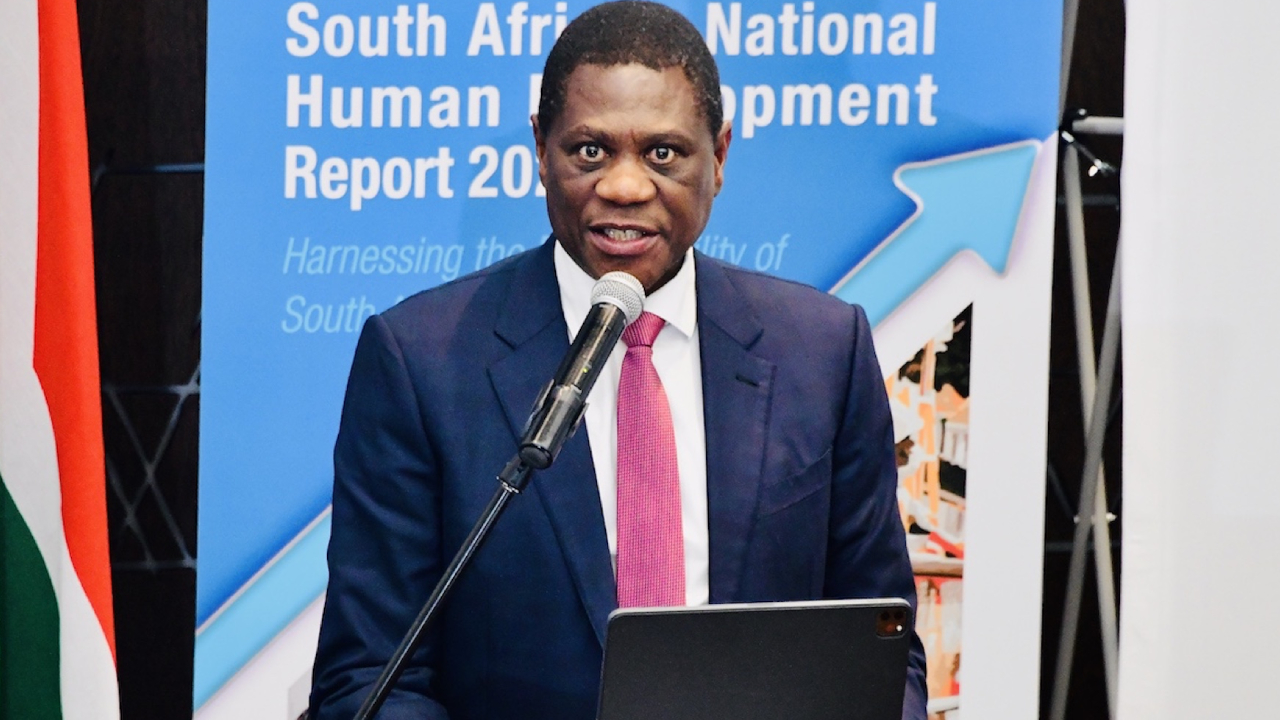- Deputy President Paul Mashatile today delivered a keynote to launch a new set of guidelines for African countries to follow ahead of elections.
- These guidelines are to ensure the integrity of elections across Africa by staving off misinformation and harassment on social media.
- While Mashatile says political parties shouldn’t spread false claims, last year the ANC was allegedly using SASSA grants to lure voters.
Deputy President of the ruling ANC party Paul Mashatile today opened a ceremony to mark the launch of a set of newly established principles and guidelines around the responsible use of social media during elections across Africa.
“In today’s fast-paced digital world, we must recognise social media’s role in shaping people’s opinions and establishing notice to the elections,” said the Deputy President.
The guidelines were established by the Association of African Electoral Authorities (AAEA) and seek to “create awareness among Election Management Bodies and other stakeholders on the benefits and threats of digital and social media to the electoral process and integrity” specifically among Africans, according to a press release.
They were drawn up with support from the Independent Electoral Commission (IEC) of South Africa.
More than half of the world’s population is expected to vote in 2024, including over 60 countries and all the states in the European Union. This also includes 15 African nations and South Africa which will decide the fate of its government on 29th May.
“The dissemination of disinformation has huge potential to undermine the fairness and credibility of elections. Credible information is the lifeblood of all democracies. Trustworthy information is crucial in the process that enables citizens to choose their leaders,” explained Mosotho Moepya, chairperson of the IEC, last year.
There have been several significant studies on how fake news on social media can influence voter behaviour. One particular piece of research from Italy’s National Academy of Science found that social media produces an “echo chamber” for its users. In these echo chambers, users will stick to information that fits their worldview and resist information that doesn’t, even if that information is more factual.
Fake news is then shared among those in these echo chambers, and as time passes the chance of factual information being shared dwindles.
“We must constructively utilise these social media platforms to inform and disseminate positive messages regarding elections with a particular focus on the youth of Africa,” said Mashatile in his opening remarks.
“We have a significant obligation to educate our population about the risks associated with misinformation concerning elections since false claims can erode trust and provoke a wave of instability in our communities. We should use social media with responsibility to ensure that the content we share is credible and accurate,” he added.
In November last year, the official X account of the ANC party posted an election advert that reads “The ANC remains committed to safeguarding the well-being of our people, especially through impactful social grants. Together, we build a foundation of support, ensuring no one is left behind. Visit your local voting station.”
The ANC remains committed to safeguarding the well-being of our people, especially through impactful social grants. Together, we build a foundation of support, ensuring no one is left behind.
— African National Congress (@MYANC) November 19, 2023
Visit your local voting station.#RegisterToVoteANC#ANCAtWork pic.twitter.com/5aWxqX43c8
The advert was met with harsh criticism by users on the platform. Many said that it marked an attempt by the ANC to use social grants as a means to lure voters, or to make it seem that social grants from SASSA are in some way sponsored by the ANC, and if the ANC were to lose power, the grants would cease. Neither of these is true.
Last year, Google, Facebook-owner Meta and TikTok pledged to the IEC that they would cooperate to fight fake news ahead of the South African general elections. One of the steps they promised would take place is the issuing of warnings to users when disinformation relating to the elections is identified.
The 2024 general elections are considered to be the most hotly contested in South Africa since 1994, when the apartheid-promoting National Party lost majority to the Nelson Mandela-led ANC. Several opinion polls hosted this year so far have revealed that the ANC is on the verge of losing its majority come May 2024.
[Source – SA Gov News]
[Image – CC BY-ND 2.0 Government ZA on Flickr]

